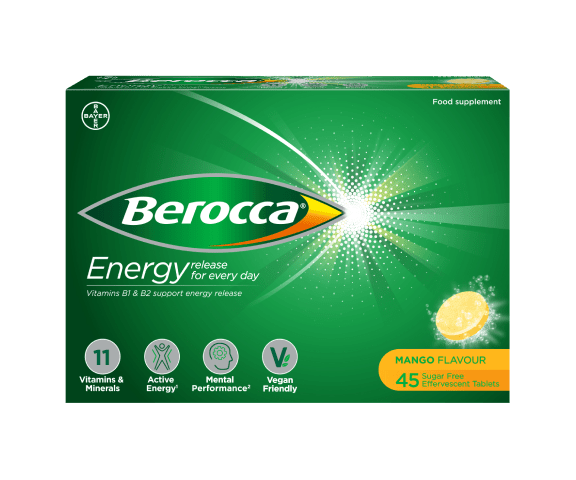Physical and mental performance: how to maintain them
Table of contents
If you want to do it all, it’s important to be at peak mental and physical performance. This means making sure your mind and body are working as well as they can. We’ve put together a guide on what performance is, and what actions you can take to support your body and mind.
Physical performance: what it is and functions
Physical performance means your physical wellness and your ability to physically carry out actions. When people think of physical performance, they might think of their favourite sports stars, a champion team or other kinds of athletics.
However, on a day to day basis your physical performance means how effectively you can carry out daily tasks. If you’re struggling with physical performance, you might find that everyday activities like walking short distances are more physically challenging or take more effort.
Mental performance: characteristics and role
Your mental performance is how you’re functioning mentally and emotionally on a day to day basis. This means looking at your energy levels, as well as your ability to think and concentrate.
If you’re not feeling mentally your best, it can manifest in a number of ways. You may also be struggling with your ability to focus and maintain motivation both at work and at home. These psychological challenges can be just as difficult as physical ones, making it harder to look after your body’s needs.
It’s not just about psychology either: mental performance also means your ability to think. You may experience difficulties with things like problem solving, memory, mental maths, executive function and other skills if your mental performance isn’t at its best. If you’re at school, university or college you may find yourself struggling with learning and retaining information.
Physical and mental performance: how they work together and how to maintain them
Often, our physical and mental performance work together, or influence each other. For example, if you’re feeling overwhelmed at work, you may find yourself being unable to sleep, which can leave you feeling low on energy as well as struggling to concentrate. Supporting one means supporting both!
Maintaining your mental and physical performance might mean making some changes to your behaviour, mindset and daily routine. There are a few aspects of your life you can take a look at – specifically your diet, how much exercise you’re getting and how you’re looking after your mental wellbeing.
Making sure you’re looking after your body and keeping moving is a great way to support both your physical and mental performance. This means doing a little exercise every day.
If you’re not in the habit of exercising, it can feel overwhelming at first. Try starting by taking a walk for 15 minutes every day and work your way up from there, building up as you go. If you don’t hit your goal every day, don’t worry: it’s not a competition, and if you’re too focused on failure, you’ll find it harder to keep motivated.
When you want to start your own fitness journey, think about what type of exercise will keep you engaged and fit into your routine best. You might be a good fit for running or strength training, or you could join a team sport if you’ve got a competitive streak. Start training and see what suits you best!
There are lots of resources you can take advantage of if you want to maintain your physical and mental wellbeing. The NHS website has easy guides on eating and physical wellness, which is a good place to start. You could start a challenge like couch to 5k, setting yourself a realistic goal and deadline to meet it. Why not join a gym, or look for a personal trainer for coaching you through the best techniques?
You should also make sure you’re looking after your mental wellness. Practice mindfulness techniques, such as meditation, and take some time to de-stress after a long day. To look after your mental wellbeing, it’s important to take positive steps so you can feel confident and in control. If you need support, you could book sessions with a counsellor or therapist to help guide and support you through the process, giving you the skills you need to manage your mental wellbeing successfully.
Physical and mental performance: dietary recommendations and other tips
The first step to looking after yourself is to look after your diet. Making sure you’re eating well doesn’t just keep your body healthy, but your mind too. Lots of vitamins and minerals support mental performance and making sure you’re getting enough of them is key to maintaining normal cognitive and psychological function.
Some of the vitamins and minerals which have this effect are:
- Vitamins B1, B3, B6, B7 and B12 maintain normal psychological and neurological functions
- Vitamin B5 helps to maintain normal mental performance
- Iron, iodine and omega 3 help to maintain normal cognitive function
To make sure you’re getting all the nutrients you need, you need to eat a healthy, balanced diet with five portions of fruits and vegetables a day. You should also make sure you’re drinking plenty of water (6-8 glasses a day) as being dehydrated can leave you feeling tired.
If you’re not feeling your best, but you’re not seeing results from the changes you’re making, you should visit your doctor. There are a number of conditions – both mental and physical – that can affect your wellbeing, and your doctor will be able to talk to you and help you find a solution.
If you’re worried you need a little more support, you could add a daily supplement to your diet like Berocca. Berocca contains vitamin B5 to support normal mental performance, vitamins B6, B9 & B12 to help reduce tiredness & fatigue and vitamin C and zinc to help support your immune system. Simply add a Berocca tablet to a glass of water and enjoy!
Find
The nearest shop
Get your Berocca from a store nearby.
*Berocca Boost contains caffeine which helps improve alertness and concentration. Do not exceed 400mg of caffeine per day. Not suitable for those pregnant or breastfeeding.





